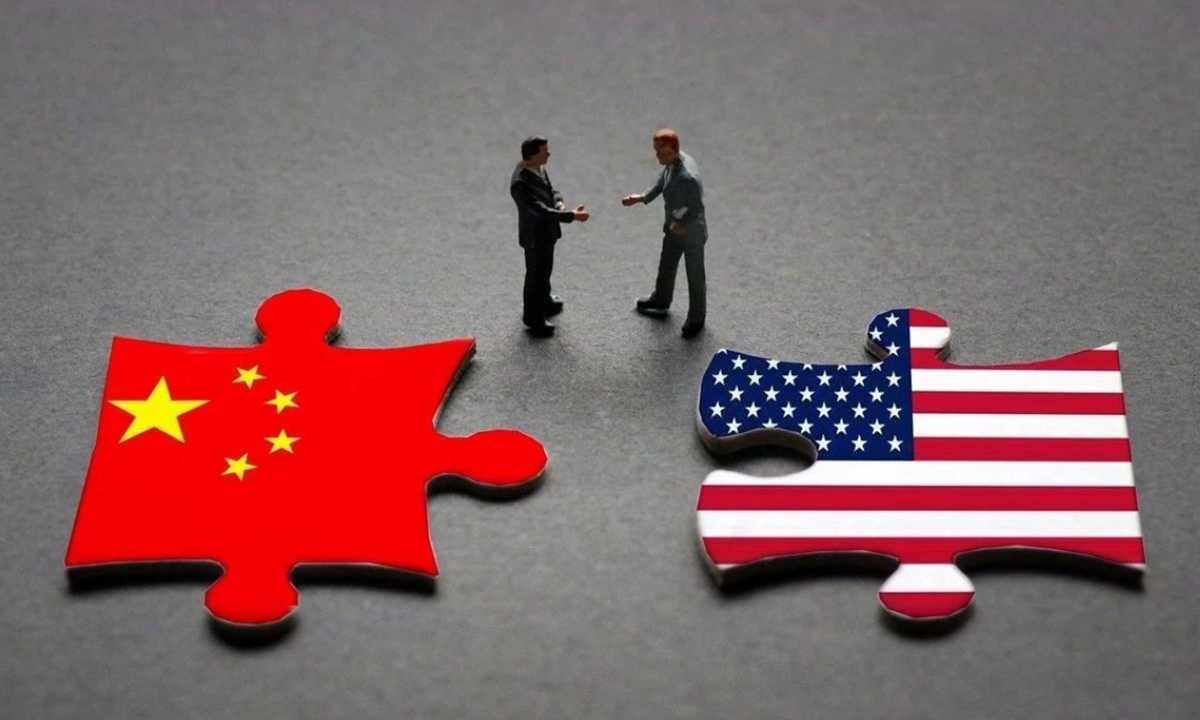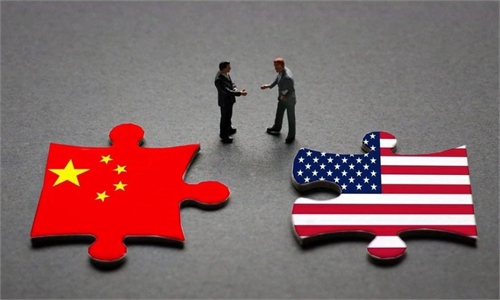China-US audit supervision cooperation hoped to become a model case: Global Times editorial

Photo:IC
China-US audit supervision cooperation has achieved positive results. On Thursday local time, the US Public Company Accounting Oversight Board (PCAOB) issued a report confirming that it was able to completely inspect and investigate the accounting firms headquartered in the Chinese mainland and Hong Kong SAR in 2022, thus vacating its relevant determinations made in 2021. On Friday, the China Securities Regulatory Commission (CSRC) welcomed the PCAOB's decision to vacate its previous determinations and said it looks forward to building on previous experience and carrying out audit oversight cooperation with the US counterparts in the years to come with enhanced mutual respect and trust. To a certain extent, the "Chinese concept stocks delisting crisis" has achieved a soft landing.
Realizing such progress has not been easy. Since the US House of Representatives passed the Holding Foreign Companies Accountable Act in 2020, which put forward additional disclosure requirements on foreign companies listed in the US, the "risk of collective delisting of Chinese concept stocks" has become a topic of great concern to the outside world. If it does come to that point, Chinese companies and American investors will bear the brunt, and a lose-lose situation will inevitably take shape. Therefore, despite having many differences, China and the US have always been willing to solve the problem, and have conducted many candid, professional and efficient dialogues. The two sides signed an agreement for audit oversight cooperation in August this year. The Global Times published an editorial at that time saying this was a symbolic case of China-US cooperation. However, some US and Western media made irresponsible and carping comments, claiming that "the possibility of a failure to implement the agreement is greater."
But what has happened over the past four months? The PCAOB dispatched a team more than double the size of a typical team for similar work to Hong Kong for on-site inspections, stayed three weeks longer than the typical timeframe, and finally completed their work and left Hong Kong earlier than expected. When outlining the cooperation on Friday, the CSRC stated that the two parties have "acted in strict accordance with the legal and regulatory requirements of their respective jurisdictions and consensus reached in the agreement," "worked together efficiently and effectively on a number of field inspections and investigations, yielding good progress" and "both sides set up inspections and investigation plans upon thorough communication and coordination." The statement of the PCABO roughly reflects that of the CSRC. It can be said that the audit supervision cooperation between China and the US was carried out in public opinion supervision under which the US and West were nitpicking everything and finding quarrel in a straw. But to date, they have found nothing. This proves that the work of the two countries, especially the Chinese side, is highly professional.
The benefits brought by the implementation of the audit solution are obvious: the existing Chinese concept stocks may be able to avoid the risk of delisting, and a positive signal was sent to more Chinese companies to go public in the US. Meanwhile, the US financial liquidity channel was expanded, letting more US investors benefit from the development and growth of Chinese companies. Both China and the US will benefit from it. This also shows that in many fields, China and the US can avoid a zero-sum game and as long as the two parties adhere to the spirit of mutual respect, professionalism and practical cooperation, they will be able to find a feasible cooperation path that meets their respective legal and regulatory requirements.
Of course, this achievement is still an interim one, and the future may not be so smooth. The biggest uncertainty comes from the US side. Not only has China always maintained an open and supportive attitude toward overseas listing of companies, but it has also never changed its attitude toward promoting equal and mutually beneficial cooperation between China and the US. China has always advocated resolving specific divergences between the two sides through cooperation.
However, in recent years, with the poisoning of the atmosphere toward China in the US, Washington has not only made frequent sharp turns in its China policy, but has actually gone further in its casual formulation and revision of relevant laws and regulations, driven by a strong desire to suppress and contain China. Laws and regulations often sing to the rhythm of politics. This creates great obstacles to the stability of China-US relations, and also damages the international credibility of the US itself.
On the same day that the PCAOB released the report, the US Department of Commerce put 36 Chinese entities on an export controls blacklist, citing concerns over national security. It launched another groundless attack on the Chinese chip industry. This is the latest example of Washington's impulsiveness again hurting both China and the US, as well as global stability.
Some Americans treat every Chinese company as a threat, and even made an international joke that "Chinese magnets can't be used." There are many other examples of such absurdity, which have even been criticized by the US media: Many US officials and analysts think that "every Chinese technology is a loaded gun pointed at the heart of America," the "costs of US restrictive measures are commonly underestimated," and "if Washington doesn't take a breath and steady itself, it might tumble over the edge."
We hope that the audit and supervision cooperation between China and the US can continue to advance, form a normalized and sustainable cooperation mechanism, jointly create a more stable and predictable international regulatory environment, and serve as a demonstration of the cooperation between China and the US.
In this way, China and the US will prove with actions that specific differences can be resolved, and that the two countries can benefit from cooperation. Its significance will probably go far beyond this individual case. And the most important thing is to have more sincerity toward each other and less suspicion driven by Cold-War mentality. After all, the common interests of China and the US are not reduced, but increased by it.


